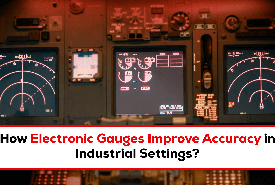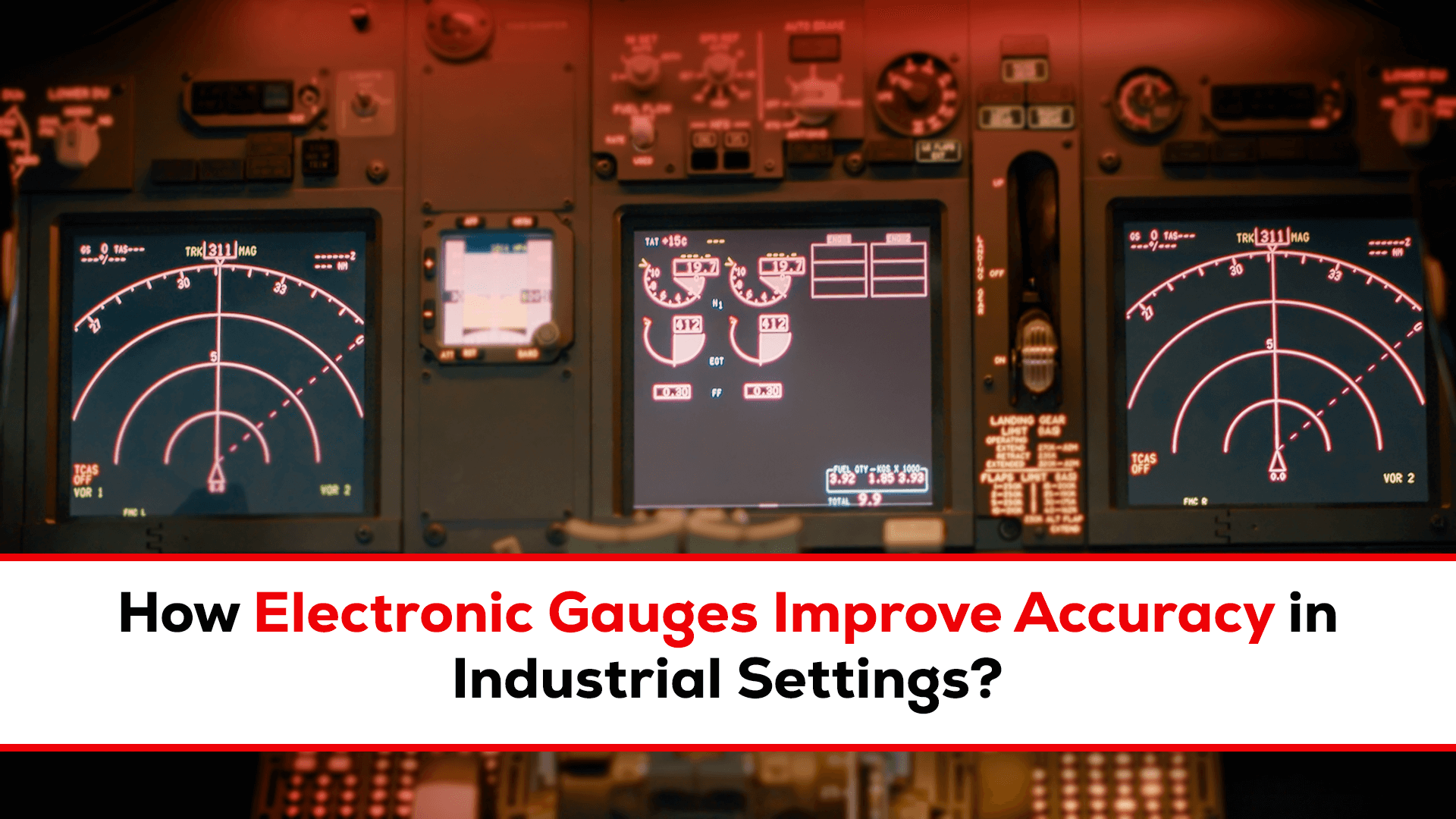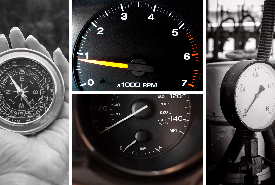- Free shipping for NZ Customers. All items are available in NZ warehouse
- +64 (0) 212576146
- info@veethree.co.nz
How Electronic Gauges Improve Accuracy in Industrial Settings?
- Home
- Blog
- Electronic Gauges
- How Electronic Gauges Improve Accuracy in Industrial Settings?
Have you ever wondered how industrial facilities maintain such high levels of precision in their operations?
Imagine trying to control complex machinery without reliable measurements—it would be nearly impossible. Electronic gauges have stepped in to fill this critical role, providing accurate, real-time data that keeps everything running smoothly.
If you're involved in any industrial field, understanding the benefits of electronic gauges can make a significant difference in your work.
Let's dive into how these devices are improving accuracy and why you might want to consider integrating them into your operations.
Why Accuracy Matters in Industrial Settings?
Accuracy isn't just a buzzword in industry—it's a necessity.
Precise measurements ensure that processes run efficiently, products meet quality standards, and safety protocols are upheld.
Inaccurate readings can lead to costly errors, equipment damage, and even dangerous situations.
Safety First
In industrial environments, even a small mistake can have serious consequences. For example, incorrect pressure readings in a boiler system could lead to an explosion. Electronic gauges provide the precise data needed to monitor systems effectively, reducing the risk of accidents.
Efficiency and Productivity
Accurate measurements help optimise processes, reducing waste and increasing productivity. When you know the exact parameters, you can fine-tune operations to run at their best. This efficiency translates to cost savings and better use of resources.
Quality Control
Customers expect high-quality products, and meeting those expectations requires precision. Electronic gauges help maintain consistent quality by providing exact measurements, ensuring that every product meets the required standards.
Overview of Electronic Gauges and How They Work!
Electronic gauges are devices that measure various parameters—such as pressure, temperature, or flow rate—and display the readings digitally.
Unlike traditional analogue gauges, which use mechanical components, electronic gauges rely on sensors and electronic circuits to detect and process data.
Key Components
- Sensors: Detect physical quantities like pressure or temperature.
- Signal Processors: Convert the sensor input into a readable signal.
- Display Units: Show the measurements in a digital format, often with backlighting for easy reading.
How They Work?
- Measurement: The sensor detects the parameter (e.g., pressure) and converts it into an electrical signal.
- Signal Processing: The electrical signal is processed and amplified to ensure accuracy.
- Display: The processed signal is converted into a digital readout, showing the exact measurement on the screen.
Key Benefits of Using Electronic Gauges for Accuracy
Electronic gauges offer several advantages over traditional gauges, making them a valuable tool in industrial settings.
High Precision
Electronic gauges provide highly accurate readings, often down to tiny fractions. This precision is essential for processes where even minor deviations can have significant impacts.
Real-Time Monitoring
With electronic gauges, you get instant readings. This real-time data allows for immediate adjustments, helping to prevent problems before they escalate.
Ease of Reading
Digital displays eliminate the guesswork associated with analogue dials. The numbers are clear and easy to read, reducing the chance of human error.
Programmable Features
Many electronic gauges come with programmable settings. You can set alarms for specific thresholds, record data over time, or even integrate the gauges with computer systems for advanced monitoring.
Durability and Reliability
Electronic gauges are built to withstand harsh industrial environments. They're resistant to vibrations, temperature fluctuations, and other conditions that might affect traditional gauges.
How Electronic Gauges Compare to Traditional Gauges?
While traditional gauges have been used for decades, electronic gauges offer improvements that can make a significant difference in industrial applications.
Accuracy and Precision
- Traditional Gauges: Subject to mechanical wear and tear, which can affect accuracy over time.
- Electronic Gauges: Provide consistent, precise readings with less degradation over time.
Response Time
- Traditional Gauges: May have a slight delay due to mechanical movement.
- Electronic Gauges: Offer instantaneous readings, allowing for quicker responses.
Ease of Use
- Traditional Gauges: Require manual reading and interpretation, which can lead to errors.
- Electronic Gauges: Digital displays are straightforward and reduce the chance of misreading.
Maintenance
- Traditional Gauges: Mechanical parts may require regular maintenance and calibration.
- Electronic Gauges: Generally, require less maintenance, with fewer moving parts to wear out.
Advanced Features- Traditional Gauges: Limited to basic measurement functions.
- Electronic Gauges: Offer programmable settings, data logging, and integration with other systems.
Best Practices for Choosing and Maintaining Electronic Gauges
Selecting the right electronic gauge for your needs involves considering several factors. Proper maintenance ensures longevity and continued accuracy.
Choosing the Right Gauge
- Identify Your Needs: Determine what you need to measure (pressure, temperature, etc.) and the required range.
- Consider the Environment: Choose gauges designed to withstand the specific conditions of your industrial setting, such as moisture, temperature extremes, or corrosive materials.
- Check Compatibility: Ensure the gauge is compatible with your existing systems, especially if you plan to integrate it with computer systems or other equipment.
- Look for Quality Brands: Invest in reputable brands known for accuracy and durability.
- Evaluate Features: Consider additional features like alarms, data logging, or connectivity options that may benefit your operations.
Maintaining Your Gauges
- Regular Calibration: Periodically calibrate your gauges to maintain accuracy. Follow the manufacturer's recommendations.
- Routine Inspections: Check for signs of wear, damage, or corrosion. Address any issues promptly.
- Proper Installation: Ensure gauges are installed correctly to prevent damage and ensure accurate readings.
- Keep Them Clean: Dust and debris can affect performance. Regularly clean the gauges according to the manufacturer's guidelines.
- Protect from Extreme Conditions: While durable, electronic gauges can still be affected by extreme conditions. Use protective enclosures if necessary.
Our Verdict
Electronic gauges have become indispensable tools in industrial settings, offering unmatched accuracy and reliability.
By providing precise, real-time data, they help improve safety, efficiency, and product quality.
Whether you're in manufacturing, marine operations, or any industrial field, integrating electronic gauges into your systems can make a significant difference.
If you haven't considered upgrading to electronic gauges yet, now might be the perfect time. With their advanced features and proven benefits, they're an investment that pays off in improved operations and peace of mind.
FAQs







